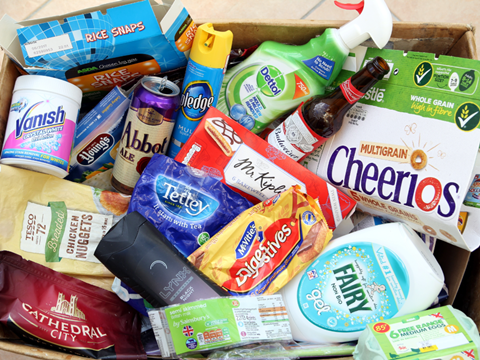
WRAP has announced the UK Packaging Pact, a ten-year agreement seeking to avoid virgin materials, boost recyclability and recycled content, upscale reuse and refill, improve traceability, and more.
This move is considered the ‘successor agreement’ to the UK Plastics Pact, which was enforced across a seven-year period since 2018. During that time, it aimed to eliminate ‘problematic’ and unnecessary plastics, design 100% of plastic packaging to be reusable, recyclable, or compostable, effectively recycle or compost 70% of plastic packaging, and implement an average of 30% recycled content across all plastic packaging.
Apparently, it successfully eliminated 99.8% of ‘problematic’ plastic items, transitioned 70% of plastic packaging into reusable, recyclable, or compostable formats, effectively recycled 59% of plastic packaging, and achieved an average of 26% recycled content.
Looking ahead, Plastic Pact members suggested that specific percentage targets should be replaced with general goals that could inform individual KPIs based on each company’s level of ambition. This is hoped to help companies adapt at a realistic pace and improve their contribution.
The UK Packaging Pact will be launched in April 2026 and come to a close in 2035. It intends to ‘transform the UK’s relationship with packaging’, in part by ‘optimizing’ packaging – cutting down on single-use and non-renewable materials, driving recyclability and recycled content (especially in plastic and glass), and ‘right-weighting’ packaging designs.
Another goal is to scale reuse and refill by developing a roadmap, standardizing prefill processes, developing interoperable systems, and increasing the amount of reusable packaging available.
Members will also be encouraged to support circular infrastructure investment. This will involve establishing an evidence base to drive flow of investment, supporting effective EPR funding decisions, and identifying and addressing system bottlenecks.
Additionally, the Pact will aim to improve traceability, reduce data burdens by simplifying reporting processes across UK and EU standards, and help standardize existing tools.
Companies can register their interest by visiting WRAP’s website and learn more via the Pact framework.
Back in September 2023, the European Plastics Pact unexpectedly ceased all operations. Emma Samson, marketing communications manager at Searious Business, unpacked the decision’s implications for the industry at large – arguing that voluntary pacts ‘should only act as soft regulation, with time-limited targets backed by threats of enforcement in case of non-compliance’.
Since then, big brands like Mondelēz, Mars, Nestlé, L’Oréal USA, and Walmart have withdrawn from the U.S. Plastics Pact after falling short of its targets. Our very own Tim Sykes considered the potential causes, from right-wing stakeholder pressure to the viability of the goals in the first place; yet CEO Jonathan Quinn assured us that the Pact’s work ‘remains strong, focused, and more critical than ever.’
If you liked this story, you might also enjoy:
The ultimate guide to the Packaging and Packaging Waste Regulation in 2025
How are the top brands progressing on packaging sustainability?
Everything you need to know about global packaging sustainability regulation in 2025
The key to increasing the use of reusable packaging in supermarkets














No comments yet